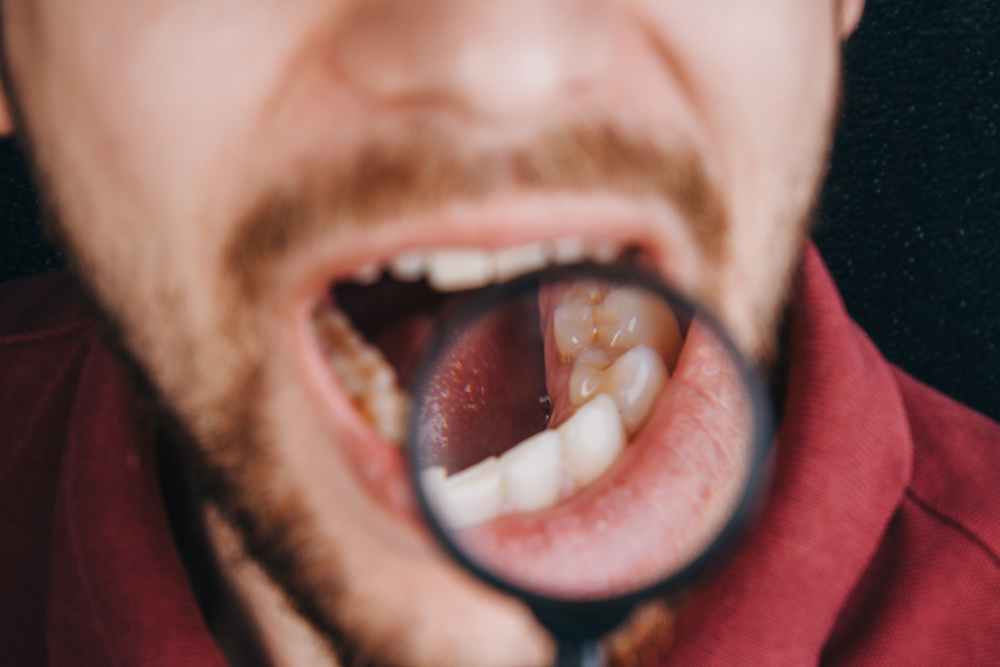How Does Tobacco Destroy Your Oral Health & Overall Being?

Oral health, tobacco, and oral cancer
The number of oral cancer patients in India contributes to a third of global oral cancer patients, and oral cancer is the 6th most common cancer across the globe.
There is a strong correlation between oral cancer and betel nut quid chewing, tobacco smoking, smokeless tobacco, and excessive consumption of alcohol. There have been plenty of researches that have concluded that tobacco has direct and indirect carcinogenic effects. Whether it is tobacco in the form of bidi or cigarette or smokeless tobacco in various forms like Mishri, kheni, gul, mawa, gudakhu, dohra snuff etc; tobacco has always been and will remain detrimental to the mouth and other parts of the body – health.
How smoking and tobacco affect oral health
We have all grown up seeing ‘no smoking’ sign boards and advertisements that develop in us a feeling that smoking is bad for health. And there are enough research papers and content over the internet that proves that smoking is really bad for an individual. But how is smoking dangerous? Generally, when we think of the ill effects of smoking, we usually think of lung cancer. But smoking and consuming tobacco products are not just limited to your lungs but also your oral health. Let’s take a look at how tobacco can affect your oral health:
Tobacco causes staining of teeth
Continuous chewing of tobacco and smoking can cause stains on your teeth. The nicotine and tar content present in tobacco keeps on accumulating on your teeth resulting in yellow colour teeth. Sometimes, the teeth even turn brown in colour due to excessive usage of tobacco products.
Though professional teeth whitening can help fight such a tooth staining condition and restore the brightness of your teeth, failure to quit tobacco can again turn your teeth yellowish in colour.
Bad breath and gum diseases
When you put tobacco in your mouth or smoke a cigarette, the tar, chemical, and nicotine that goes along with the tobacco products also stay in your mouth. The odour of nicotine and other chemicals can linger around in your mouth and become a reason for bad breath that even brushing and mouthwash cannot fix.
Furthermore, tobacco also affects the ability of the enzymes present in your mouth to fight bacteria which ends up in tooth decay and other gum diseases.
Risk of tooth loss
Going to a study, it is said that a person who continuously smokes a packet of cigarettes every day for a decade is prone to lose three teeth on average. It is because tobacco restricts the flow of blood to the gums and blocks the nutrients that should be supplied to the teeth. This can further cause the weakening and decay of teeth resulting in tooth loss.
Moreover, the plaque build-up that stands responsible for tooth decay and gingivitis worsens if one does not put a stop to their smoking habits. It also affects the bone density and tissues of teeth. As a result, the gums and jaw start losing their integrity, making a person more susceptible to accruing tooth infection and further tooth loss.
Risk of oral cancer
While gum diseases and tooth decay that results from tobacco usage can be scary, what’s scarier is the risk of falling prey to oral cancer. Tobacco products have more than 60 known cancer-causing content known as carcinogens. Due to these carcinogens, people who smoke and consume tobacco products are more prone to develop mouth cancer.
Slows down the healing process
Years of consuming tobacco products and smoking can result in tooth loss, cavities, and gum diseases. Besides just falling prey to these oral health issues, what’s more challenging is people who consume these products have a slower recovery process. Tobacco consumption directly affects the immune system of the body and thus slows down the healing response. So, if a person who is habitual of tobacco consumption undergoes a periodontal treatment or any other damaged teeth treatment, restoration and cure for the condition become more challenging.
Smoking- The harm is not just restricted to the user
Tobacco does more harm than you can think of because it is not just the smoker who is affected by the consumption of tobacco but also others who stay in the vicinity of the smoker. If a person stands nearby a smoker, they are also affected by second-hand smoke. The smoke that comes out of the cigarette and the smoke exhaled by the smoker combine together and serve as second-hand smoke for people who surround a smoker. Hence, not only does a smoker face the ill effects of oral health considerations, but it can also put people around the smoker and their oral health at increased risk.
Tobacco and Oral Health
Nicotine is the prime ingredient of tobacco that develops an addiction in people who consume tobacco. Nicotine, in general, affects all the organs of the body, but it directly hits the central nervous system and increases the level of brain dopamine which makes it an addictive agent.
Tobacco and oral health are also closely related, which raises severe oral health concerns besides increasing the number of oral cancer cases every year. Oral cancer is triggered by tobacco chewing and poor oral hygiene. Thus, it is imperative that you maintain proper oral hygiene, quit smoking, and visit your dentist on a regular basis to stay at bay from oral health issues that result from tobacco consumption.


